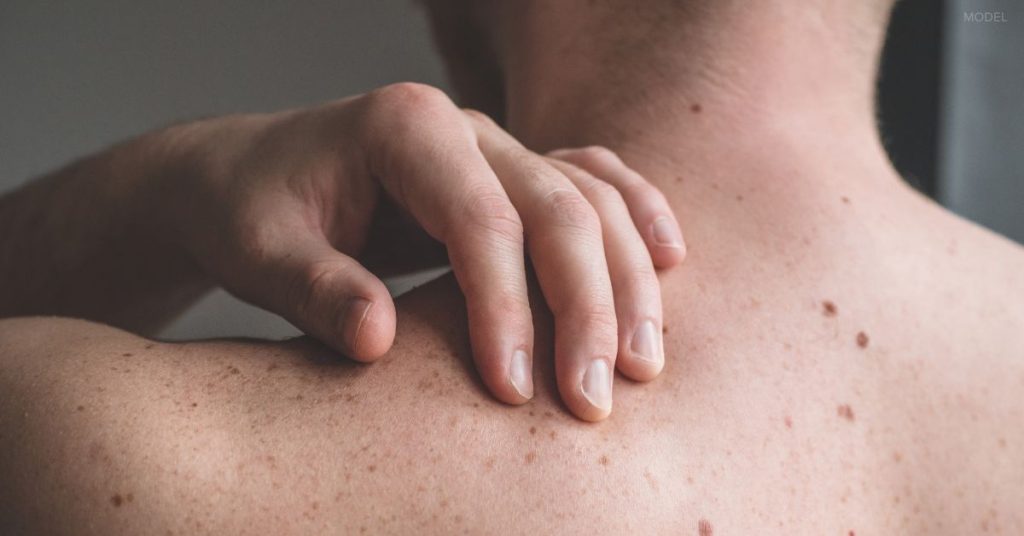If a family member has previously been diagnosed with melanoma or has developed a suspicious lesion, one of your first worries might be, “Is skin cancer genetic?” Your skin health plays a vital role in your overall well-being. Below, we answer some questions our patients often ask regarding skin cancer and highlight the importance of annual skin exams.
Is Skin Cancer Genetic?
Although skin cancer can have a genetic component, heredity is only one component to consider. While some people may have a higher risk due to family history, skin type is the leading genetic factor. Fair-skinned individuals are often more susceptible to developing skin cancer due to their lower levels of melanin, which provides natural sun protection.
However, it is important to stress that lifestyle plays a dominant role in the health of your skin. Exposure to ultraviolet (UV) radiation from the sun or tanning beds remains the leading cause of skin cancer. Regardless of your genetic predisposition, it is essential that you wear a broad-spectrum sunscreen and practice safe sun habits.
How Common Is Skin Cancer?
Skin cancer is more common than many people think. In the United States alone, experts estimate that 1-in-5 Americans will develop skin cancer in their lifetime. The good news, however, is that skin cancer is highly treatable when detected early.
What Are the Symptoms of Skin Cancer?
Skin cancer can manifest in various ways, but some common signs to watch out for include:
- Changes in the size, shape, or color of moles
- New, irregularly shaped growths
- Sores that don’t heal
- Unusual changes in skin pigmentation
If you notice any of these symptoms, consult a dermatologist as soon as possible.
What Does Skin Cancer Look Like?
Skin cancer can appear in various ways, but common signs include changes in moles or the appearance of new, irregularly shaped, or multi-colored growths on the skin. You may also have scaly, crusty skin and sores that may bleed, have jagged edges, and don’t heal. It’s important to note that not all skin changes indicate cancer, but any suspicious or persistent changes should be evaluated by a healthcare professional.
Can Skin Cancer Itch?
Yes, itchy or painful skin lesions are indicative of skin cancer. However, itching alone does not constitute a diagnosis. If you have persistent itching, discomfort, or other concerning skin changes, seek a professional medical evaluation.
Is Skin Cancer Curable?
The curability of skin cancer depends on various factors, including its type and stage. Basal cell carcinoma and squamous cell carcinoma, the most common types of skin cancer, are highly curable when caught early. Melanoma, the most aggressive form, can also be curable if detected in its early stages.
Treatment options include surgical excision with Mohs Surgery or IG-SRT. We’re proud to be the first practice in Southern Oregon to offer this innovative alternative to Mohs surgery—you won’t even find IG-SRT in Portland yet. Learn more about your options in our related blog post.
How To Know If You Have Skin Cancer
The best way to know if you have skin cancer is through a professional skin exam. Dermatologists are trained to identify potential signs of skin cancer that may not be visible to the untrained eye. Self-exams are also essential; you should regularly check your skin for changes, new growths, or abnormalities.
If your dermatologist sees something suspicious, they may perform a biopsy to collect a small sample of tissue to be tested. Early detection is critical to the best health outcomes, so making time each year for a skin cancer screening should be a top priority.
Protect Your Skin Today
To book your annual skin exam or learn more about treatment options, please request a consultation or call us at (541) 200-2777 to get started. Your skin deserves the best care possible, and our experts are here to help.

Leave a Reply